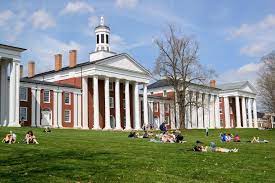
Inspired by the U.S. News & World Report’s ranking of colleges, everyone is getting into the game, each with its own criteria.
The Wall Street Journal has just released its list of “Best 400 Colleges in America.” Its rankings are based on student experiences, social mobility, and salary impact. Its greatest emphasis was on the following questions:
- How much will the college improve its students’ chances of graduating on time?
- How much will it improve the salaries they earn after receiving their diplomas?
The top school in the ranking was Princeton, followed by M.I.T, Yale, Stanford, and Columbia. Nine Virginia schools were ranked among the top 400, with four landing in the top 100. They were:
44—Washington and Lee
76—Virginia Tech
84—UVa
95—George Mason
152—James Madison
212—W&M
243—Old Dominion
318—VCU
326–Christopher Newport

Leave a Reply
You must be logged in to post a comment.